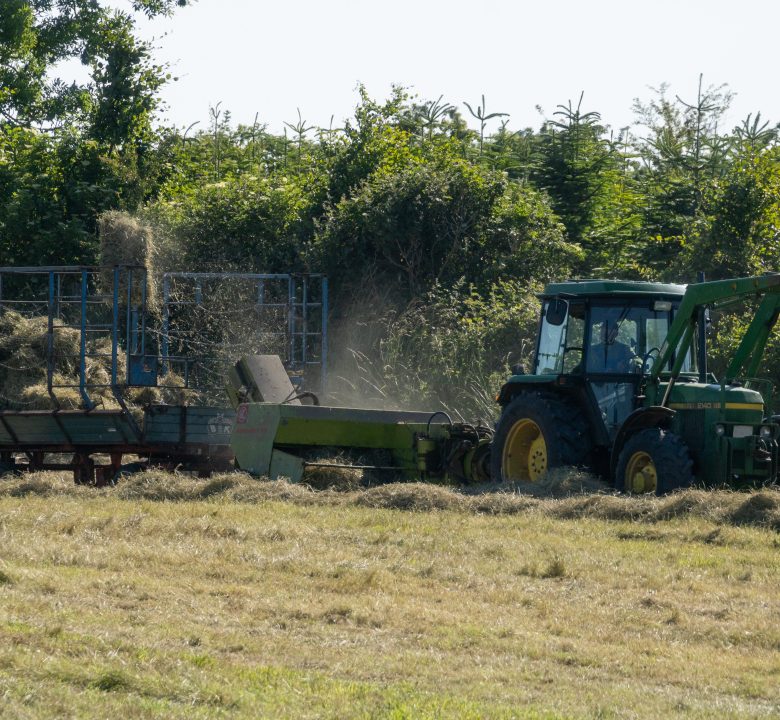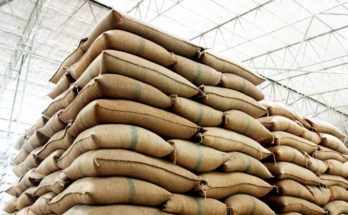5 Benefits of Composting as an Agribusiness

The 17 SDGs
August 16, 2022
9 AgriBusinesses you can start from Composting
January 31, 2023Author: Arnold Akpedeye
Sustainability Enthusiast and CEO of Okowe Investments
When you think of composting, you might imagine the image of ripe fruit and vegetable scraps slowly breaking down into usable material. If so, you’re on the right track!
Composting can be an effective way to get rid of food waste, which can otherwise contribute to issues like pests, mould and smelly odours in your kitchen or around your home. But there are even more benefits of composting food waste that you may not have realized—especially if you run an agri-business such as livestock or crop farming. Composting activities contribute to 9 of the 17 SDGS in the UN 2030 goals for a more climate friendly world. In Nigeria, 20% of Annual GDP is generated from agriculture and 88% of farmers are classified as Small-Holder Farmers.
There are approximately 38 million Small-Holder Farmers in Nigeria operating farms sized from 5 acres to 5 hectares. Encouraging the adoption of composting among these Small-Holder Farmers will have a major impact on the farming landscape. Education of farmers in regenerative agriculture practices and techniques is a quality solution for them and for the environment.
In this article, we will discuss the benefits of encouraging the adoption of composting among smallholder farmers (SHFs) in our communities. The benefits of composting are amazing!
5/5
5 Benefits of Composting for SHFs in Rural Communities
- Reduction of market and landfill waste – improve air quality & health standards
- Fresh Organic Soil generated from the impacts of composting
- Reduction in the need for synthetic fertilizers
- Improving the Soil Structure – increase of carbon levels by composting
- Power generation through composting – alternatives for rural communities
1. Reduction of Waste Presence in Communities
The act of composting is in essence, a redirection of waste from where it is traditionally disposed of by giving it a new designation. Food waste is this type of waste. Food waste makes up about 40% food losses between farms and markets in Nigeria. According to the United Nations, Nigerian’s also dispose of approximately 37 million Tonnes of food waste per year. Redirecting this waste to composting sites will open up opportunities for recycling new products, enabling job creation, business creation, revenue generation and community development. These benefits of composting are so achievable.
EarthCare Nigeria Limited is already practicing regenerative farming methods, with a composting facility that has the capacity of processing 200,000 metric tonnes of food waste into organic fertilizer. A standard composting site will generate fertilizer, fresh organic soil, high quality soil structure, power and residual gas for cooking from the biogas generated during the process. In light of the waste generated per year from food, it is evident that composting is a viable climate solution for Nigerians to capitalize on. Developing solutions for managing food waste would benefit our communities by reducing waste presence in markets, on roads and around our homes.
Diverting food waste to compost generation would also play a major role in improving air quality, reducing presence of disease carrying insects and educating our communities on the value added from paying attention to our food waste management.
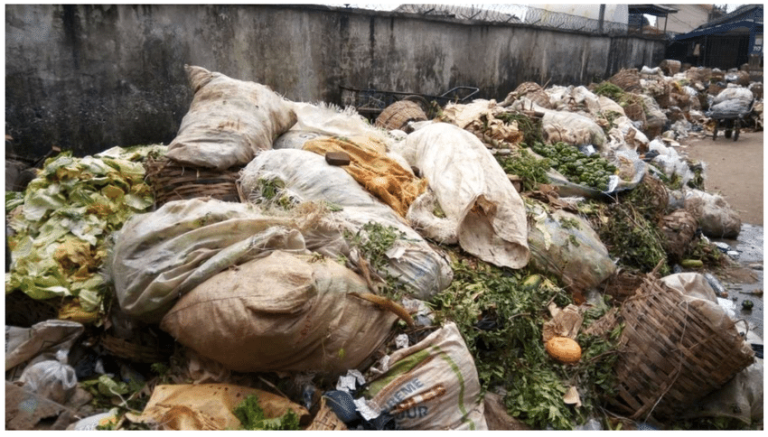
2. Generation of Fresh Organic Soil for composting in agribusiness
Composting food waste makes use of organic materials that would otherwise go to waste and instead transforms them into useful fertilizer for your agri-business. The process also contributes to climate action by using organic matter that decomposes, typically reducing their contribution to landfills. In turn, the process of composting will regenerate the carbon content of the soil. It will also ensure a healthy environment with reduced landfill waste and trapped carbon in the soil further reducing contribution to greenhouse gases.
The increased soil carbon content contributes to higher crop yields and improves soil and crop health. The composting process contributes to the promotion of organic matter growth in soil, substantially increasing the micro-nutrient presence. Soil Organic Matter (SOM) accounts for 2-8% of soil by volume and it provides the soil with essential nutrients like Nitrogen, Phosphorus and Sulphur as it is decomposed by microbes. It aids the development of a diverse ecosystem of soil organisms, including those that help to fight pests and diseases.
The contribution of SOMs benefits the root system making it easier for plant roots to thread through the soil for air, water and nutrients. Introducing compost material, plant residue, cover crops, carbon-based fertilizer and other organic materials is vital. They can be decomposed by microbes, benefiting the farmer from an increase in SOM translating to better yields, higher quality crops and longer soil/farm lifespan. As you can see the benefits of composting span wide.
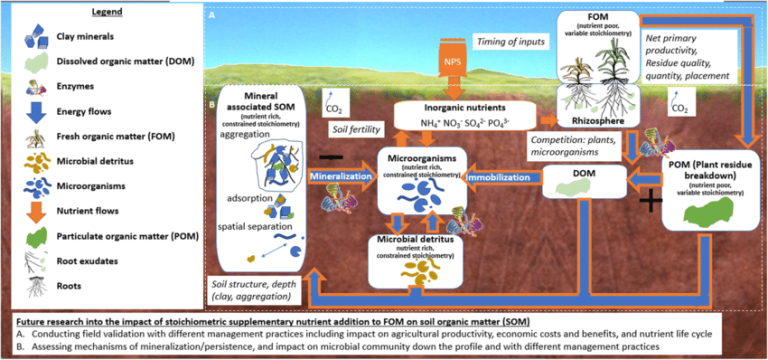
The contribution of these SOMs also benefits the root system making it easier for plant roots to thread through the soil in search of air, water and nutrients. Introducing compost material, plant residue, cover crops, carbon-based fertilizer and other organic materials that can be decomposed by microbes, the farmer is benefiting from an increase in SOM which translates to better yields, reduced need for tilling, higher quality crops and longer soil/farm lifespan.
3. Reduce the Need for Synthetic Fertilizer, a huge benefit of composting in agribusiness
Composted materials serve as a natural fertilizer, without the need for relying on artificial fertilizers. This is important because crops often receive too much synthetic fertilizer, which can lead to soil degradation and improper nutrient intake in plants. Composted materials also reduce carbon emissions, helping with climate action and environmental impact. In addition, using compost reduces or eliminates the need for plastic bags that are used to collect organic waste. These bags end up polluting landfills and oceans. Using compost bins, Nigeria’s urban population can decrease their environmental footprint saving money by reducing costs associated with organic fertilizer from outside sources.
Nigeria’s rural communities, where most farms are located, will benefit with the costs of synthetic fertilizer reduced if composting and organic fertilizer generation are adopted. There is much room for adoption with over 37 million tonnes of food waste generated every year. EarthCare Nigeria Limited, mentioned earlier, is a pioneer in the space and processes just over 200,000 tonnes of organic food waste using Agritech.
This waste is converted into organic fertilizer, packaged and sold to local and international markets. Organically produced fertilizer has longer lasting benefits than synthetic fertilizer as it does not contain harmful ores (heavy metals) and chemicals that deteriorate soil health overtime.
Over use of synthetic fertilizer can contribute to soil acidification and soil crust reducing organic matter content. The presence of non-beneficial species stunting plant growth, altering soil pH, and generating pests. This could lead to the generation of greenhouse gases. Organic fertilizer not only provides nutrients for the plant, it also provides sustenance for the soil and contributes to soil health and longevity.
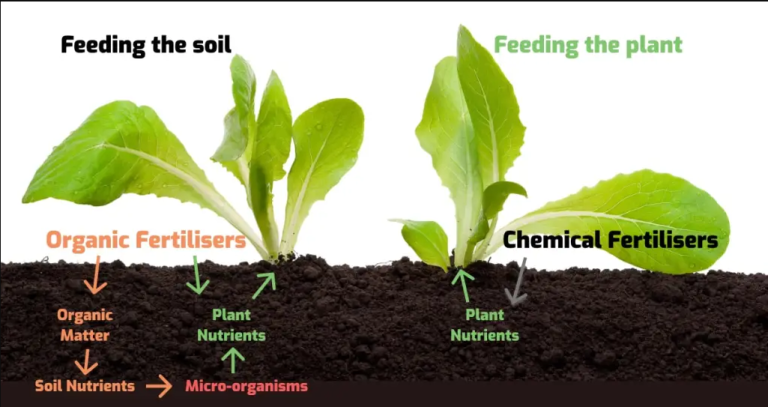
This waste is converted into organic fertilizer, packaged and sold to local and international markets. Organically produced fertilizer has longer lasting benefits than synthetic fertilizer as it does not contain harmful ores (heavy metals) and chemicals that deteriorate soil health overtime.
Over use of synthetic fertilizer can contribute to soil acidification and soil crust, reducing organic matter content, presence of beneficial species, stunting plant growth, altering soil pH, generating pests and could lead to the generation of greenhouse gases. Organic fertilizer not only provides nutrients for the plant, it also provides sustenance for the soil and contributes to soil health and longevity.
4. Improving the Soil Structure
To create and maintain healthy soil, you can add organic matter to your garden and lawn. Organic matter includes straw, leaves, mulch, ground bark and compost. How much you need depends on how fertile your soil is to begin with. While adding organic matter will improve poor soils over time, it’s best to start with quality soil for optimal results. A soil test is recommended to ascertain the current nutrient level and soil content. The pH should be between 6.0 and 7.0 (slightly acidic). It’s also important to know if your soil has adequate levels of nitrogen, phosphorus, potassium, calcium, magnesium, sulphur, and trace elements such as iron and zinc.
These nutrients are essential for plant growth. If needed, they can be added in a variety of forms: ammonium sulphate, urea, rock phosphate, bone meal, or greensand. In addition to these major nutrients, other minor nutrients that may be needed include boron and manganese.
The importance of microbes
Trace minerals like copper and molybdenum are usually not added because they occur naturally in most soils. Research about the soil in your area will give you hints into what the soil may be lacking. In general, a variety of these bioactive chemicals can be sourced from composted food waste e.g. potassium from banana peels. Waste from food processing facilities and fruit processors can be channelled to farms to facilitate composting and improve soil structure. In Sandy soil, composting reduces porosity and positively contributes to water retention. In loamy or clayey soil, composting creates stronger microbe presence to increase flow of water by improving soil permeability.
The nature of soil structure is critical for root growth ability of plants either positively or negatively impacting health and yield. Introducing microbes, bio-waste and compost material will increase organic matter presence promoting presence of soil workers in the soil. These soil workers’ permeate the soil utilizing bioactive bacteria for consumption that aids decomposition and promotes nutrient generation.
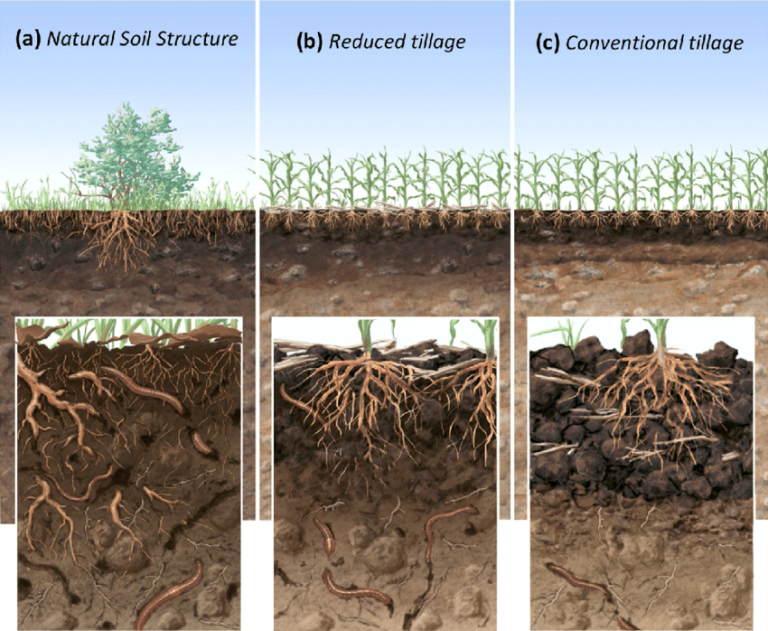
Trace minerals like copper and molybdenum are usually not added because they occur naturally in most soils. Research about the soil in your area will give you some further hints into what may already be lacking in that area. In general, a variety of these bioactive chemicals can be sourced from composted food waste e.g. potassium from banana peels. Waste from food processing facilities and fruit processors can be channelled to farms to facilitate composting and improve soil structure. In Sandy soil, composting reduces porosity and positively contributes to water retention. In loamy or clayey soil, composting creates stronger microbe presence to increase flow of water by improving soil permeability.
The nature of the soil structure critically impacts the root growth ability of plants on a farm and can either positively or negatively impact plant health and crop yield. The introduction of microbes, plant and food waste and compost material will increase organic matter presence which promotes an element of soil workers in the soil system. These soil workers’ main objective is to permeate the soil utilizing bioactive bacteria for consumption that aids decomposition and promotes nutrient generation.
5. Alternate Source of Power in Rural Areas
The urban and rural areas in Nigeria are not well provided with electricity. Waste from these areas can be used as an alternate source of power. An added benefit is that it can help minimize environmental impact.
Domestic waste generated from the population requires proper recycling methods like biogas generation. The Biogas produced from organic wastes through the composting process have enough energy to run a generator and produce electricity. This reduces the demand for fuel in rural areas, increasing access to electricity and improving livelihoods throughout rural Nigeria.
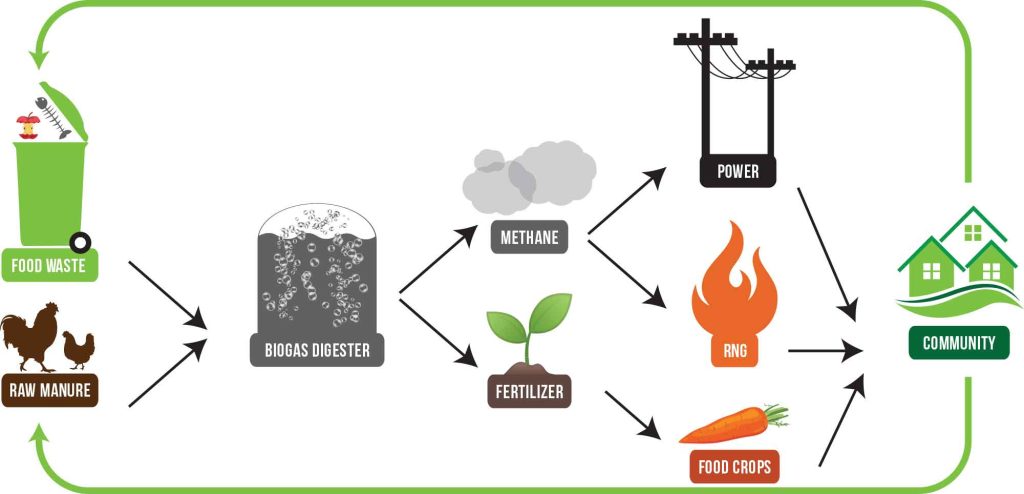
This will reduce the cost associated with importing fuel for generators thereby saving foreign exchange which is important at a time when there is a high demand for Naira currency due to the high inflation rate in Nigeria. A generator powered by biogas reduces noise pollution as compared to diesel generators which are currently being used by many organizations in different sectors of the economy including hospitals, schools, and offices among others. Companies like Sistema.bio and Biogas International in Kenya are working tirelessly to develop this technology to help Small-Holder Farmers to capitalize on food waste and convert it to cooking gas and also an alternative power source. Inoplex in Australia has developed biogas generators that run solely on biogas generated from food waste with capacities up to 1000 kwh.
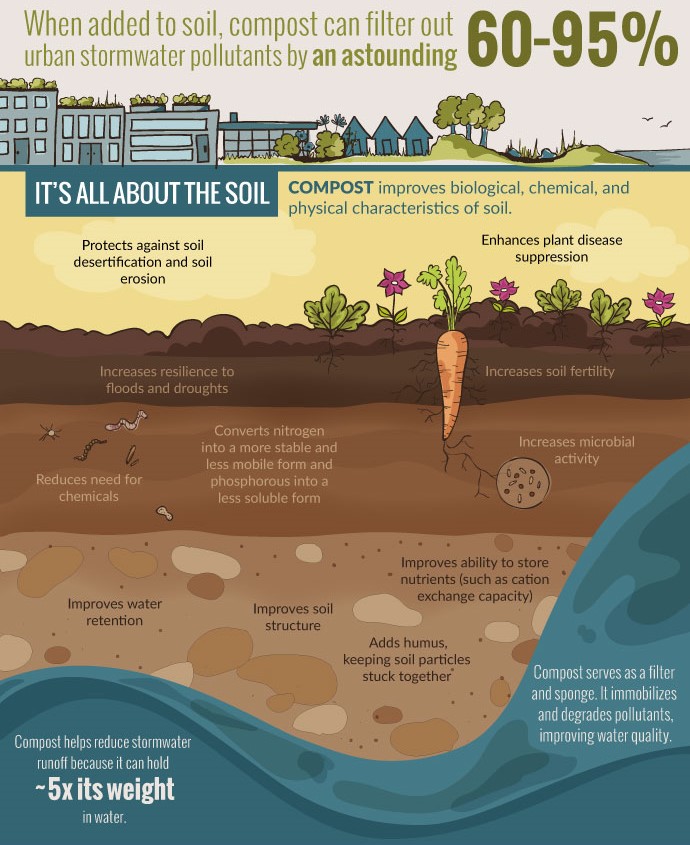
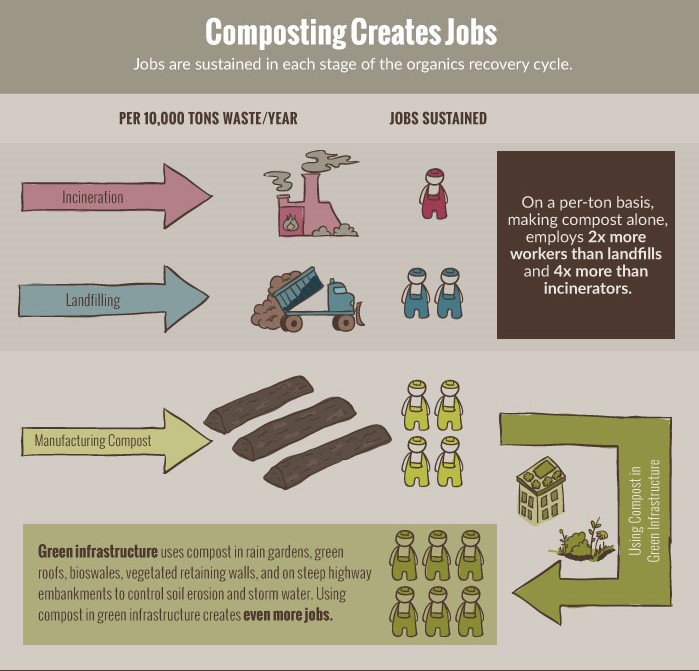
How can we encourage the adoption of composting among other innovative agricultural practices by SHFs in Sub-Saharan Africa?
Composting not only reduces your household’s trash volume by up to 40%, it also reduces landfill crowding and greenhouse gas emissions. Reducing landfills will be important for achieving climate action goals. Experts note, no other single act has greater impact on reducing carbon dioxide emissions than changing trash disposal practices. The benefits to Small-Holder Farmers (SHFs) are invaluable and would resonate change for generations to come. Encouraging the adoption of composting would impact rural communities bringing about business and job creation. Reduced capital and operating costs as well as alternatives to fertilizer, fuel for food, and for power generation.
Prana and Okowe, in partnership, are making strong efforts to achieve this. This is by providing alternatives for disposing of food waste in rural communities where we operate. We need to create awareness among Nigerians on how beneficial composting is, especially within our limited space. Encouraging adoption is imperative to make Nigeria a zero-waste nation, says Uchendu (Head of Sustainability at IITA). This medium is needed to call on policymakers, lawmakers, environmental enthusiasts and sustainability patrons in the region. Their support is crucial for raising awareness and promoting the adoption of innovative agricultural practices. That will advance our communities and create opportunities for the future.

